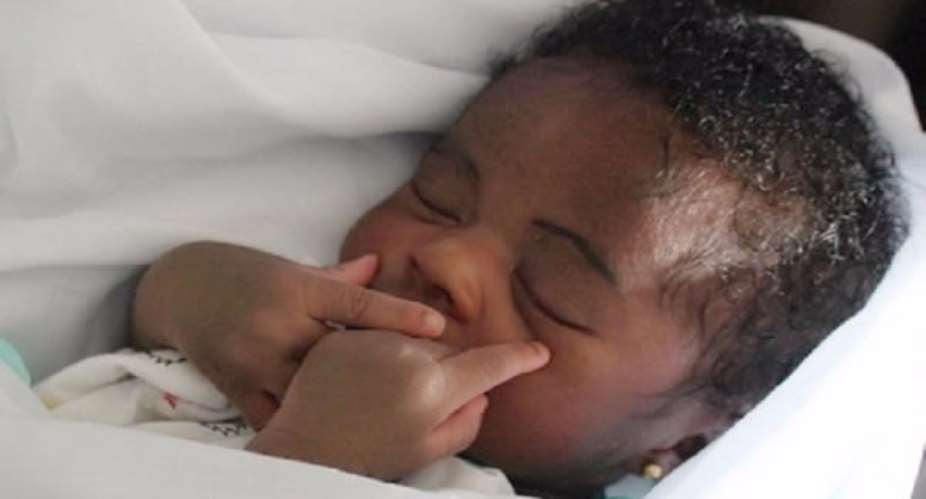In the wake of recent arrest of two senior officials of the Department of Social Welfare in Kumasi in the Ashanti Region, for stealing and selling a day-old baby have sparked debate about child trafficking in Ghana.
Over the years there have been several cases across the country especially in the Volta Region and recently the intervention of the Gender Ministry to halt the sale of a child to a couple in America.
These incidents proves beyond doubt that the fight against such barbaric activities is not yet over. It would be interesting to note that the 2017 report named "Enhancing Criminal Accountability and Addressing Challenges in Prosecution Efforts,” is a report that sought to come up with solutions that will be effective in ending trafficking in all its form. In the report, Ghana out of 187 territories and countries, was ranked at Tier 2 in to watch list countries meaning the government did not demonstrate increasing efforts at trafficking compared to the previous reporting period.
It is against these background that we write on some preventive measures to contribute to preventing these cases from happening. The following suggestions would be worthy of consideration…
Social mobilization
The institution of community vigilante committees. This can involve the voluntary formation of teams in communities to prevent child trafficking by undertaking episodic monitoring actions in their own communities and co-operating with nearby communities to detect cases of children at risk, in transit or being trafficked. Civil Society groups like the working group on Foster Care and Adoption (FosCA) can facilitate this drive by liaising with the government, and private organizations to raise awareness, detect risk cases and take action against child trafficking, as well as refer children at risk to relevant organizations.
Information and awareness campaigns
Local Government partnership with NGOs to conduct community-level training on child trafficking prevention and identification can be a useful approach. The participation of government agencies will be seen by the citizenry as a serious matter.
The media (radio, television and newspapers) must find space to talk more on ways of fighting trafficking and educating the public about the effects on society and disputing the cultural practices at least once a week can go a long way to prevent these cases.
Hosting child and youth workshops: The importance of establishing child and youth workshop cannot be over-emphasized. This would be activity-based events where vulnerable children and youths can receive training on trafficking skills and operations by perpetrators. The educational training programmes must cover what child trafficking entails and how to identify it. It is capable of making the youth proactive to report incidents of trafficking when they see it.
Also, using drama could focus on raising awareness for behavioral change. The drama performance will present the message of the causes and effects of child trafficking in a form that can be easily understood by children and the community at large. The performance would influence the audiences to question their assumptions and perceptions about child trafficking and take action.
Empowerment projects
Empowerment of women, especially the empowerment of single women, widows and mothers with skills for livelihood addresses one of the most vulnerable groups in society. The empowerment practice brings this group to the attention of the public so that their problems and needs are appropriately addressed. It is believed that when women or single mothers have gainful livelihoods the family is taken care of and the main cause of trafficking which is income poverty is reduced.
Child trafficking, specifically baby stealing and selling from hospitals and maternity homes have come to stay.. It will take consistent actions and determination and political support to prevent and reduce it. All hands must be on deck.
Solomon Okai
Research and Programs Officer
African Development Programme





 SSNIT must be managed without gov’t interference – Austin Gamey
SSNIT must be managed without gov’t interference – Austin Gamey
 Ejisu by-election could go either way between NPP and independent candidate — Gl...
Ejisu by-election could go either way between NPP and independent candidate — Gl...
 We never asked ministers, DCEs to bring NPP apparatchiks for returning officer r...
We never asked ministers, DCEs to bring NPP apparatchiks for returning officer r...
 No one denigrated the commission when you appointed NDC sympathizers during your...
No one denigrated the commission when you appointed NDC sympathizers during your...
 Dumsor: Corn mill operators at Kaneshie market face financial crisis
Dumsor: Corn mill operators at Kaneshie market face financial crisis
 Jamestown fishermen seek support over destruction of canoes by Tuesday's heavy d...
Jamestown fishermen seek support over destruction of canoes by Tuesday's heavy d...
 Election 2024: EC to commence voter registration exercise on May 7
Election 2024: EC to commence voter registration exercise on May 7
 Public schools rebranding: We’re switching to blue and white, we’re painting all...
Public schools rebranding: We’re switching to blue and white, we’re painting all...
